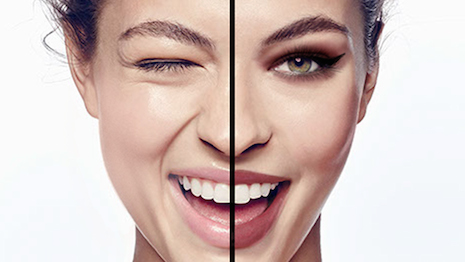- About
- Subscribe Now
- New York,
September 6, 2018

 Sephora works with ModiFace for augmented reality pushes for personalization. Image credit: Sephora
Sephora works with ModiFace for augmented reality pushes for personalization. Image credit: Sephora
LVMH’s Sephora is continuing its streak as an innovator in customer personalization, toping the ranks of Sailthru’s Retail Personalization Index for the second year in a row.
Thanks to the retailer’s commitment to putting consumers’ wants and needs first coupled with its streak in innovation, Sephora earned 13 points higher than last year on the index. However, other luxury brands seem to be struggling, as Burberry ranks as the highest true luxury brand at number 45.
"The key takeaway from this year’s report is that brands offering best-in-class, personalized experiences are thinking about three things: what makes their brand unique, what makes their buyer unique, and what they can do that is unique compared to Amazon," said Neil Lustig, CEO of Sailthru, New York. "This is why we see so many specialists at the top of the Index from the beauty category, with Sephora and The Body Shop taking the first and second spots, respectively.
"While Amazon is thinking about the use of virtual reality and augmented reality in broad strokes, what these beauty brands and many other specialists do is apply those concepts to their specific products and buyer needs," he said. "A virtual makeup application tool has to be much more nuanced than a function that lets you view an instant pot on your kitchen counter.
"Sailthru ranked more than 250 brands and their personalization prowess, designating the best in the field as the top 100."
Personalizing the experience
Sephora’s shrewdness with personalization earned the beauty retailer a score of 92 out of 100, making it the only brand on the index with a score greater than 90.
The Sephora Studio concept store is a small, intimate experience, focusing on personalization. Image credit: Sephora
Last year, Sephora introduced a host of new features to its online store focused on personalizing the purchasing process for individual customers.
Some of these features include individual recommendations based on previous purchases and a personalized welcome when past users visit the online store again (see story).
The retailer also leverages technology such as artificial intelligence to customize the browsing process (see story).
Following Sephora, The Body Shop, Walmart, Urban Outfitters and eBay rounded out the top five. Both The Body Shop and Urban Outfitters increased their scores by 30 points.
Burberry scored a 55, up from its assessment of 42 the previous year.
Michael Kors and Ralph Lauren also ranked in the index, with respective scores of 53 and 47, coming in at spots 61 and 98.
Michael Kors uses emojis for greater personalization. Image credit: Michael Kors
Rent the Runway and MatchesFashion, which are significant retail presences in the luxury world, also landed on the top 100 of the index, at 25 and 28, respectively, with scores of 62 and 61.
The lowest score in the top 100 was 47 points.
Additional insight
Despite being digitally driven, Generation Z consumers value bricks-and-mortar shopping and tactile retail experiences.
A report from Criteo finds that while three-quarters of this up-and-coming consumer group prefer to shop online, 80 percent enjoy visiting physical stores when possible and 65 percent want to touch items before buying. Rather than eschewing traditional retail entirely for ecommerce, Gen Z is instead seeking bricks-and-mortar stores that incorporate technology and seamless omnichannel shopping (see story).
Personalizing consumers’ retail experiences can lead to loyalty and increased spending, according to another report from Boston Retail Partners.
Today consumers expect more individualized communications and interactions with retailers, with 59 percent saying that personalization impacts their purchasing decisions. Identifying and appealing to shoppers with relevant offers or communications can help to establish a relationship between consumer and brand (see story).
"We are pleasantly surprised to see that personalization is no longer just lip service. In years past we’ve heard brands speaking about developing personalization strategies, but this was just to appease board members and investors as we rarely saw those statements translate into actual improvement in the customer experience," Mr. Lustig said. "However, this year we saw brands like The Body Shop and Urban Outfitters moving into the top 3 which was quite surprising at first, but when we did further research their executives have been consistently talking about these investments and it is clear that they meant business.
"Both of these brands provide evidence that legacy retailers can evolve."
Share your thoughts. Click here